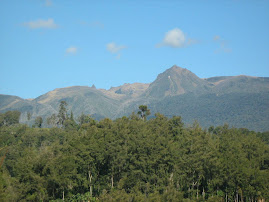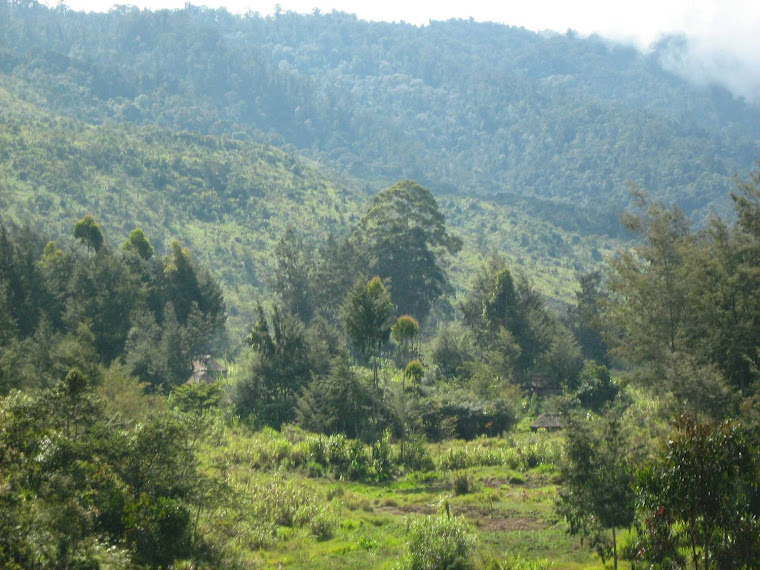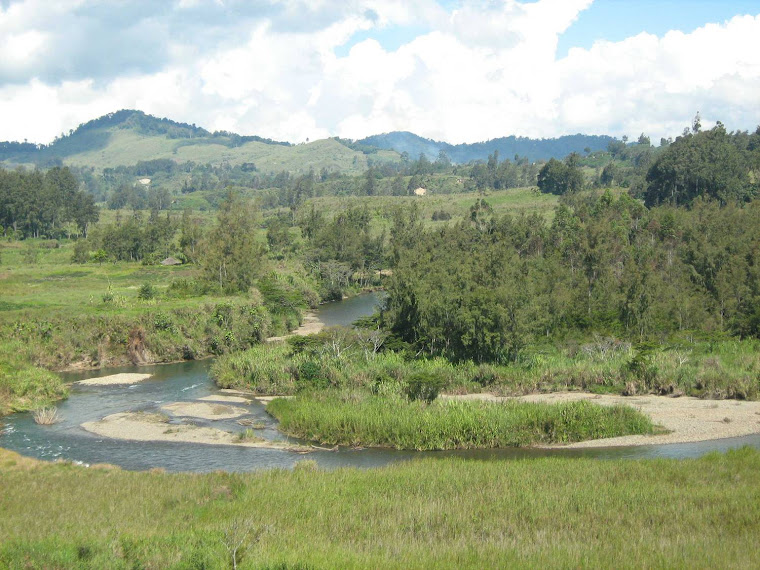By Albert Tobby in Beijing
JUST few days after the Chinese vice Premier Li Keqiang visited Papua New Guinea in November last year, a fellow Papua New Guinean raised the following questions via an email correspondence:
What does PNG Government need to know about China? What do you and I need to know about Chinese companies, businesses, be their customers, vendors, or partners, employees, etc...? Who are the Chinese and What is their world view? What do they see as the proper process for making decisions? What are the goals of China's approach toward the Pacific and PNG in general?
These are billion dollar questions, in the wake of the global financial crisis when the world is in threshold of major shifts in economic power structure and polarity. PNG is not alone in the quest to know China. The world is. Even in China itself, heated debates among Party think tanks and officials about the political and cultural ramifications of their growing influence and status in the world.
To answer those questions appropriately is of great significance to PNG’s development in such a time like this when speculations of ant-Asians are filling the atmospheres of conference rooms in Waigani to dinner mats in Vidar (North Coast, Madang) and even flooding email gossips of corporate agencies in Downtown, Port Moresby to the betel nut tables in Kamkumu Market in Lae.
As it appears occasionally in the media reports, the fate of PNG’s future engagement with the Chinese and the Asian communities would lie in the Parliamentary Bipartisan Committee’s report that was disbanded. However all responsible Papua New Guineans and genuine patriots should make it their business to search for the truth and go beyond the traditional means of information gathering in order to establish proper understanding of the Chinese people and their businesses practices.
The Chinese are not new to the Papua New Guineans. The Chinese or “Kongkong” as most Papua New Guineans referred to, have been here since the WWII. However, whether it is by design or coincidence, our knowledge about China is very limited. This may probably depict the limit of our exposure and access to information on China and Chinese.
A brief explanation about our education system may shed some light on what I meant in the sentence above. We’ve read western literature since elementary all the way to university and little did we know about China.
From history to law and religion to physics, all we know about is western invention and civilization. Almost absolutely nothing about China. Some can be tempted to say this is by design. That is to say that, the world history and the current international system is the design of the victors/rulers (i.e. west).
Have you ever thought for a moment, how the world would be today had the Japanese won the world war two? Would it be better or worse?
It is an irony that, even though China has the oldest civilization in the world and were the first to initiate vital inventions that literally transformed human civilization, yet little is known about them.
Take for example some earliest Chinese inventions and contributions to human civilization are such as the printing machine, gun powder, seismograph, wheelbarrow, kite and compass, etc. All these were first invented by the Chinese. Sadly Papua New Guineans were never told that it was Chinese invention. We were told they were invented during the Greco-Roman Empire or during the Industrial Revolution.
Let’s narrow it a little bit closer to take the case of gun and gunpowder. Because of the early date of the European bottle-shaped gun and a lack of Chinese evidence until a little later, it was once thought that guns were a European invention, made in response to the invention of gunpowder and any similar Chinese weapons came later. With the discovery of gun barrels in China dating from 1288 and 1332, this view is no longer credible.
Another interesting case to take note of is the invention of world map, compass, shipbuilding and ocean navigation. Europe’s Christopher Columbus circumnavigate the globe only once in the1490's but Zhang He a renowned Chinese scholar and diplomat made about seven voyages to Africa, India and Vietnam starting in 1405.
While theories of early world map vary from early Greece, Spanish, and Chinese civilizations, Zhang He's voyage to Africa affirmed earliest Chinese world view.
In spite of having scores of undisputable evidence supporting Chinese earliest civilization; China has been a closed society since the opium war (1840's) and have been systematically subjected to foreign invasion and humiliation.
That is why, we know very little about their way of life. However, this doesn't mean that their way of life cannot be practiced anyway in the world. Chinese way of life has stood the test of time for more than 3 millennia as compared to only few hundreds of the American and Australian way of life.
I recommend that instead for Papua New Guineans to view the western way of life as the prototype, we should open our minds and exercise flexibility to accommodate China's way of life. It is discriminatory to highly value one particular culture and despise the other which is direct violations of the UN declaration of Human Rights which we are a signatory to.
It is about time Papua New Guineans both the government and civilians stop listening to the western jargons and rhetoric about China and form our own independent views about China. This will be particularly difficult because PNG's mindsets especially the literate (alas the illiterate) for generations have been trained to think the exact opposite.
Our (PNG's) current perspective of the world (including China) is the one shaped through our past 17 plus years of formal education in PNG. Even the present means of information in PNG is mesmerized by pro-western feeds.
On the other hand, China's business internationalization is very young. They are the late comers to international business arena but within less than 30 years, they've shaken and transformed global business practices.
That is why everyone is making a big fuss out of China's rise. Papua New Guineans, instead of joining the tide of skepticism and making foul cries, we should re-adjust our world view and engage pragmatically and constructively with the Chinese in a way that best suits our national and local development needs.
In a recent debate about the growing influence of China in the world, London’s The Guardian newspaper, British journalist and author Martin Jacques said the following:
“It is now widely recognized that the balance of economic power is shifting from the rich world to the developing world. Indeed, the role accorded to the G20 rather than the G8 in seeking to tackle the financial crisis is a vivid illustration of this. But what is not recognized – and has been barely discussed – are the political and cultural ramifications of the rise of the developing countries. That, I (Martin Jacques) suspect, is because there is a deeply held western view that they will – and should – end up as clones of western modernity: in other words, there is only one modernity and it is western. This is a fallacy. Modernity is a product of culture and history as much as markets and technology. The central question here is China: will it end up like us (the west) or will it be something very different and, as a result, change the world in very fundamental ways?”
In Martin Jacques’ view, there is not a chance that China will become "western". Of course, it will be influenced by the west, as it already is, but it will remain profoundly different. To think otherwise is to believe that western norms are a universal pre-condition for successful modernization. This is a highly provincial, and hubristic, mindset.
Papua New Guinean’s should by now graduate from the imposed traditional world view of seeing western norms and institutions as the universal pre-condition for successful modernization, and engage with our Chinese partners for an independent world view. Or better spell-out, our very own Melanesian way as foresighted by our founding fathers and stipulated in our very own mother law.
I acknowledge that, Papua New Guineans (government and civilians) need to know more about China and Chinese and vis-à-vis can engage in a mutually beneficial way. Perhaps it is time a proper awareness program about China's political system, economy, business practices, history and culture etc, should be conducted among the civil institutions such as schools and churches to educate the ordinary citizens of Papua New Guinea. This might help instill some perspectives to genuine patriots and set a good platform for constructive engagement in the future.
It will be much better for the Government of Papua New Guinea to start contemplating to establish a school of Confucius in the major Universities in PNG. This will help ease the cultural and language barrier between Chinese and Papua New Guineans.
Many developing countries around the world, especially African countries realized the benefits such establishment will contribute to their countries development. Today Africa has about four schools of Confucius.
Exchange in culture and education among young people will serve as a bridge to promote better understanding between our two peoples and a major driving force for a healthy and stable growth of SINO-PNG relations.
Note: Albert Tobby, a PNG postgraduate student at Tsinghua University in Beijing contributed to this article. For comments, contact him on email: senartobe@yahoo.com.au or Mathew Yakai on m_yakai@hotmail.com. The article was also published by Sunday Chronicle newspaper in Papua New Guinea.
American movie include Fijians as cast and crew
6 years ago







